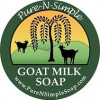Is buying organic products practical or not?
Is buying organic products practical or not?
Organic products are supposedly more healthy and environmentally friendly, but most of them come with a heavy price tag. Do the benefits outweigh the cost?I'd have to say they do. Organic products, especially vegetables, tend to offer more bang for your buck because they haven't lost any nutrient value due to herbicides, pesticides, etc. like conventional produce. Not to mention, organic products like wheat and corn make it possible for you to know that they haven't been genetically modified.
I would like to start by saying yes. The benefits out weigh the costs. I would say that you can get five gallon buckets and potting soil. Go get a few tomato plants for a dollar or two a peace, maybe a few squash seeds and plant them. There are ways to jar your own organic products. It takes a little time, but in a 2 to 3 month period off of just a couple of plants you can produce a years worth of organic products and you know where it all came from. Much cheaper to go this rout. I have been doing this for several years now and we never have to buy vegetables. It all comes down to how much do you want to save. Also we all know pesticides and chemicals used in mass production farming is hazardous and is affecting our health.
Yes and no. I personally feel that the word "organic" has become very popular in marketing, and not everything that you buy that says organic is necessarily good or 100% natural.
Organic is suppose to be healthier and environmentally more friendly, but I also believe that buying products from local growers who may not be certified organic to have if not even better quality product at a more affordable price.
You can always expect to pay more for better quality natural ingredients like essential oils are not mass produced in chem. labs. There is a huge operation involved to get just a little bit of oil.
So to answer your question I personally do not feel that it is always practical, and that we should learn how to research and read labels to question if indeed we are paying the extra price because of the sticker that say's organic or not, and to not limit buying from local growers who may not be able to afford to be certified organic but still grow and provide sustainable products.If you are able to purchase organic products from local farms, you could also consider how your purchase helps the local economy. Check out farmer's markets in your area and find an local organic producer if you want to make more of a difference than just a possible healthier choice.
If you do buy organic, don't buy imported organic from China. Chinese laws prohibit the USDA from inspecting their farms. I'm not sure about other imports, but be wary. If you do invest in buying organic, I recommend going to farmers markets. The groups that set them up don't like the bureaucracy and low amount of credibility of a USDA certified organic product. So they combat it by supplying us healthier and cleaner locally grown food. I think I'll start taking my own advice!
There is no evidence that organic produce is nutritionally superior to non-organic. However, we always buy organic produce when available because it tends to taste better, and there is no chemical residue on crops, that never seems to wash off. Organically reared animals tend to taste better, have no growth hormones pumped into them, and generally have a better way of life before slaughter.
You can shop at farmers' markets and contact local growers directly to find organic produce at lower costs. Also, watch the grocery stores for good sales on organic products, including skin care. Supporting these farmers is important because they actually give back to the soil instead of tearing down, which makes their products much higher in nutrient value without adding harmful substances. Remember, too, that anything not grown organically may be produced from genetically modified seed, which has not been around long enough to know the long term effects.
Practical for your health, maybe; but not for your wallet.
- bhaveshdhanani03posted 13 years ago
0
Practical. organic food is little bit costlier but it serves the nutrient value in it.It is also free from chemical.
With the birth of our girls, we've bought organic products in the hopes that we can minimize their exposure to the amount of ever evolving harmful chemicals and pesticides that have overtaken the produce in this country. As added benefits, not only does it help to support the local farmers, but it also sends a message (if enough of us do it) to the big corporate offenders cutting corners to make a buck, that we want to do a better job taking care of our farmlands and the produce that's raised on these farmlands. Expensive, yes! Is it worth it, I believe so more now than ever.
They are not more healthy... they simply do not have pesticides (or shouldn't). You might think that is more healthy and in theory it might be. Just depends on the source and condition of the item.
The Government allows farmers switching over to Organic farming to include a percentage of conventional feed in livestock feed. Now that's not very assuring is it?
And they may not be more environmentally friendly either... it depends on how they are grown/produced.
Organic in and of itself is a good thing in principle. But it really depends on the product.
The cost is higher for two reasons.
1. Perception of a higher quality product
2. Scarcity
Organic Sugar is not more healthy than conventionally grown sugar.
Organic doesn't equal health.Today's "organic" label of food is definitely not like how it used to be in the 60's when it first started out in San Francisco with the hippies. It began with this chick growing lettuce in her own field, which got popular. Naturally, an entrepreneur came knocking at her door, wondering if she'd allow his business to take over selling this "organic" lettuce to the rest of the U.S. Sounds a lot like the industrial food industry, doesn't it?
If you want to know if these organic foods are better for you, you should find out where it's made, how it's made, and how they keep the food fresh to sell it. If it's not grown within a few hours distance of the place it's selling it to you, it's probably not as organic, or healthy, as you may think.
If you want to learn more about "organic" food, or just food in general, you should read The Omnivore's Dilemma by Michael Pollan. I have never thought of food the same way after reading it. Fantastic book and easy to read.Hi Georgie, I dont think there are many benefits to organic food. I think its a marketing gimmick. So many people now are striving to eat healthy, I understand that, but you dont know if these items in a store are truly organic. Maybe during the winter, you carefully choose your veggies and fruits from the store but during the summer what fun to garden and have true organic products that you can store for the winter. I can no longer garden, however I do have a deck. I grow tomatoes, lettuce, strawberries, green peppers, red peppers, jalapeno peppers, all in containers. I make salsa, for the winter, as well as spagetti sauce, ketchup, etc.. I always have a fresh salad, and freeze the peppers for over the winter. Oops, almost forgot the potatoes, I use old tires to grow potatoes, no digging needed.
Related Discussions
- 29
Any advantage to eating organic foods?
by lizmoss71 13 years ago
I understand that organic foods are thought to be better for our environment, through not using harmful pesticides etc.But I was wondering if there was any health benefit to eating organic food? Does it actually make any difference to us whether we eat an organic apple or a normal one, for...
- 15
Why do people say that healthy eating is expensive?
by Caitlin Pyle 12 years ago
Why do people say that healthy eating is expensive?
- 43
Organic meals and food
by Steven Philip Lindquist and aliases in nature 8 years ago
Is there truly organic food or is it the mere assumption of semi-organic food on the planet? I would question that while prices of all organic food ranges from store to store, all food is of organic nature. Why have organic food so expensive that people that need it the most and are the most at...
- 12
Do you prefer organic food from what markets regardless of the price?
by Audrey Selig 7 years ago
Do you prefer organic food from what markets regardless of the price?Consumer Reports recently rated markets of all types in current 2015 issue and revealed excellent information. Many markets received very low scores. Most organic markets received high ratings.
- 7
Is organic farming better for the environment and human health?
by ptosis 7 years ago
Is organic farming better for the environment and human health?Nicotone pesticide is permitted in organic gardening. Nicotine Sulfate is Nicotine extracted from tobacco or related Nicotiana species and is one of the oldest botanical insecticides. The synthetic neonicotinoid use in France, Germany...
- 8
What are the top 5 reasons to purchase organic produce?
by Stephanie Marshall 12 years ago
What are the top 5 reasons to purchase organic produce?Organic produce is usually more expensive, so why pay more?


















